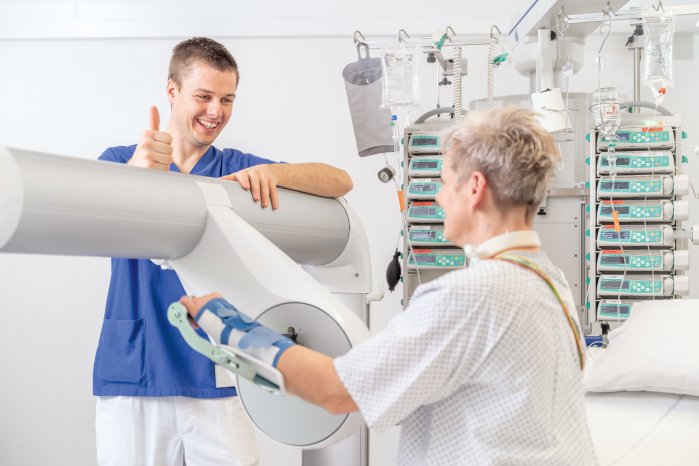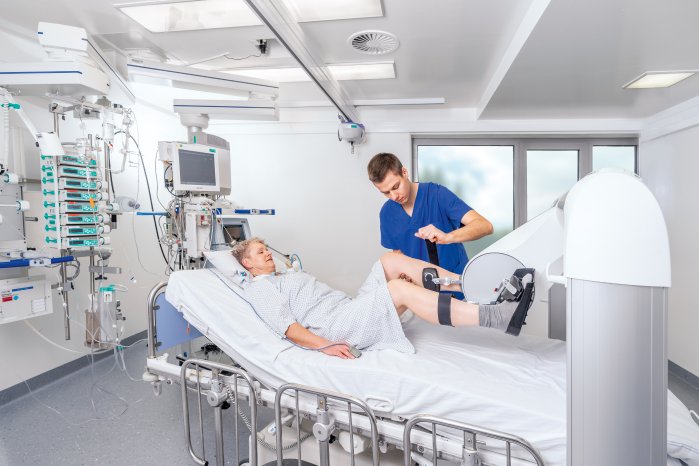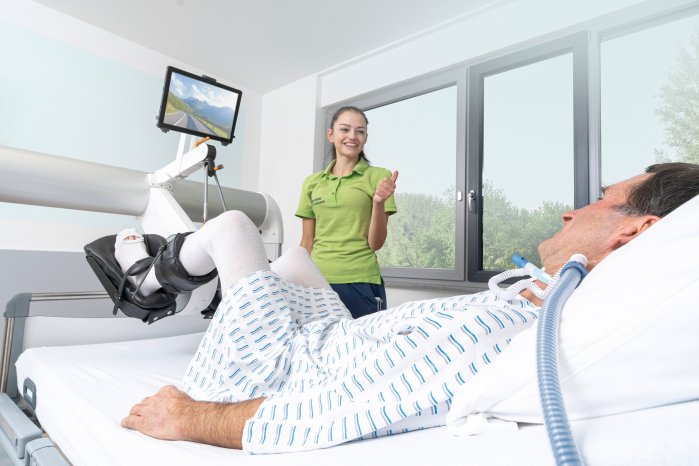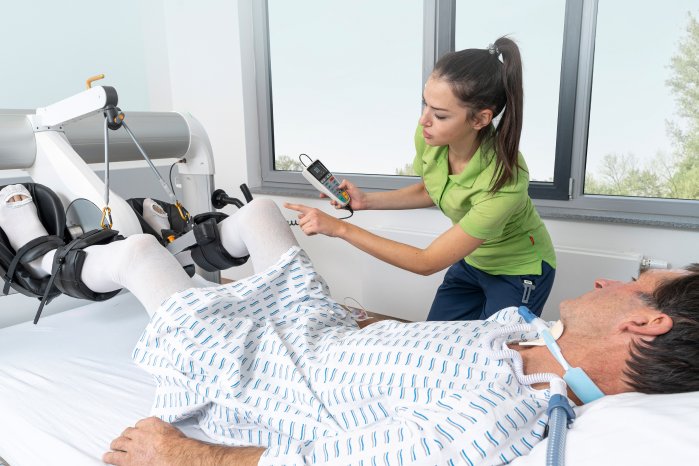Weakness acquired in intensive care sets in quickly and has lasting consequences
Prolonged intensive care is associated with significant complications. For example, if patients are mobilized too late after a stroke, heart attack or severe infection, the risk of permanent loss of mobility increases. "Prolonged immobility is harmful, as a decrease in muscle mass and bone mineral density as well as an impairment of essential body functions can already be observed within the first week in the intensive care unit," explains physiotherapist and clinical expert in early mobilization, Tobias Giebler, from the University Hospital Tübingen. "Patients decondition, which is associated with significant loss of function, reduced quality of life and increased mortality." Clinical research suggests that early mobilization reduces the development of weakness acquired through prolonged stay in ICU. "Patients should be mobilized and taken out of bed as early as possible. This reduces risks and helps patients maintain and improve their physical condition," says Giebler.
Early mobilisation saves resources and demonstrably brings great benefits to patients
Early mobilisation can reduce the length of stay of patients in intensive care by an average of two days. This not only saves considerable resources, but has been shown to bring great benefits to patients. Their recovery is speeded up and they find their way back to a self-determined life significantly more often and faster. This is in line with the overarching goal of hospitals to provide patients with high-quality care despite limited resources. However, the practice of early mobilisation is not yet widespread due to barriers in the clinical setting. Knowing about the barriers and identifying appropriate strategies to overcome them can help to make the concept an integral part of daily routine. "The success of early mobilisation is a demonstration of the commitment and competence of the interdisciplinary treatment team," confirms Giebler. "It needs problem awareness, but also appropriate solutions for implementation."
Creating awareness and showing practical solutions for implementation
With the newly launched awareness campaign "Early mobility matters", THERA-Trainer informs health professionals worldwide via social media, professional journals and congresses about the benefits of early mobilisation and presents solutions from the company's own technology portfolio for implementation. "Our recipe of success for early mobilization of severely affected patients in intensive care units, is the combination of safety, easy handling and variable use," explains THERA-Trainer CTO Otto Höbel. The product suitable for this purpose is the THERA-Trainer bemo. An in-bed cycling device specially designed for early mobilisation. With bemo, patients in the intensive care unit can be mobilized while lying in bed, before they are able to get out of it. "The bed bike has been clinically proven to be associated with significantly reduced duration of mechanical ventilation, length of stay in the ICU and incidence of weakness."
To learn more, visit: https://lp.thera-trainer.com/en/early-mobilization/





